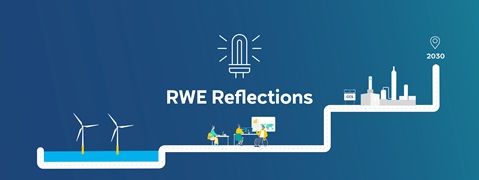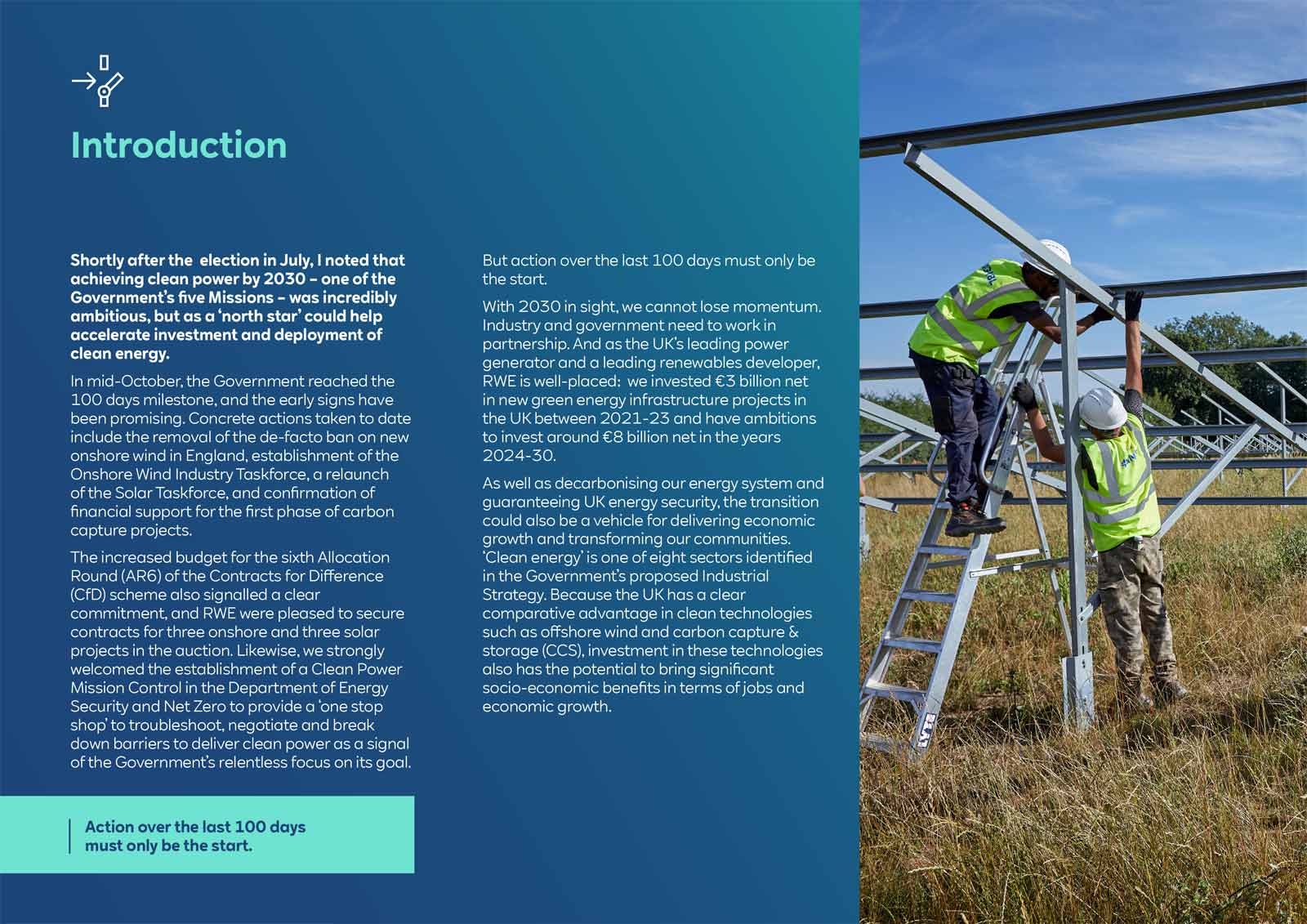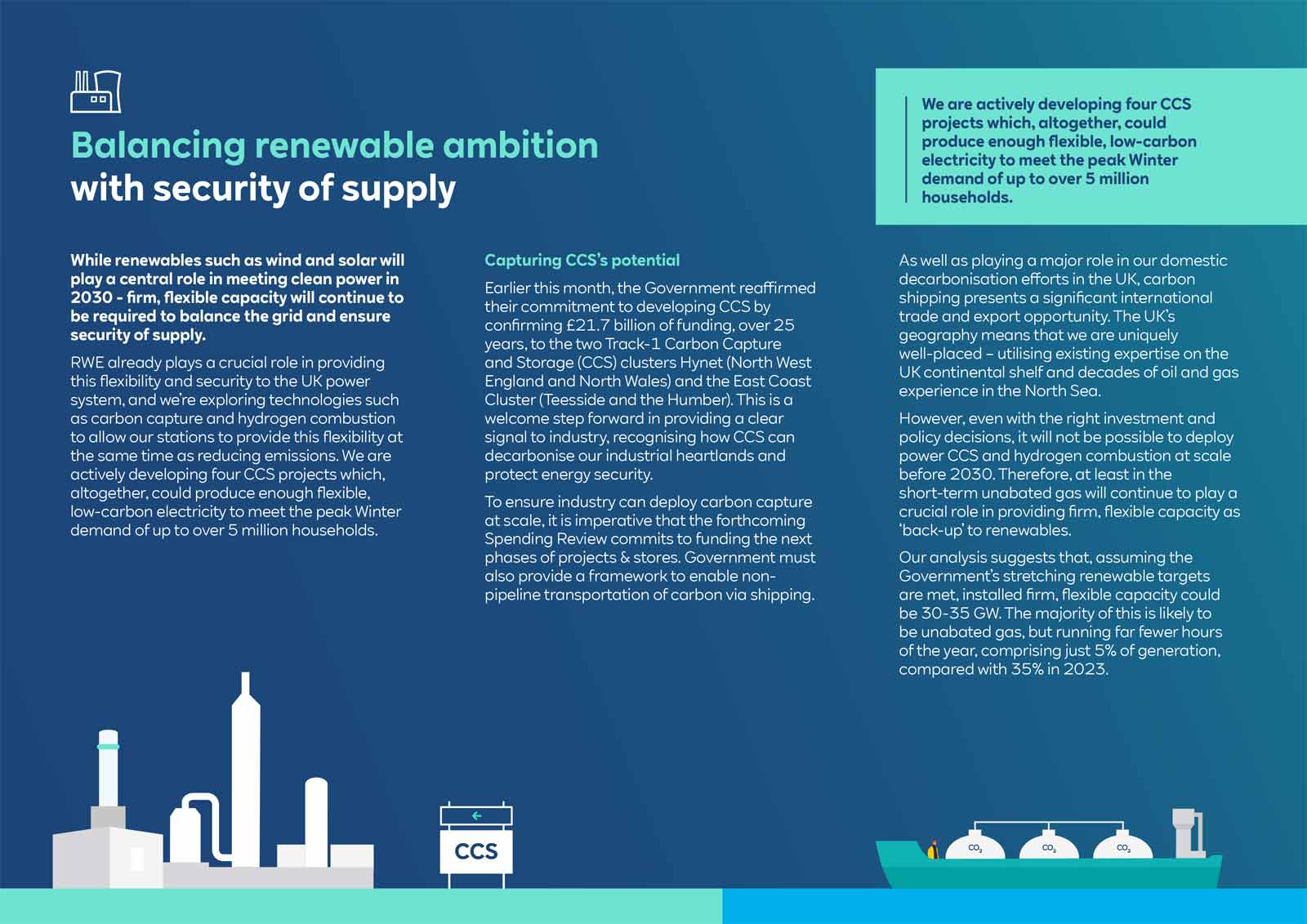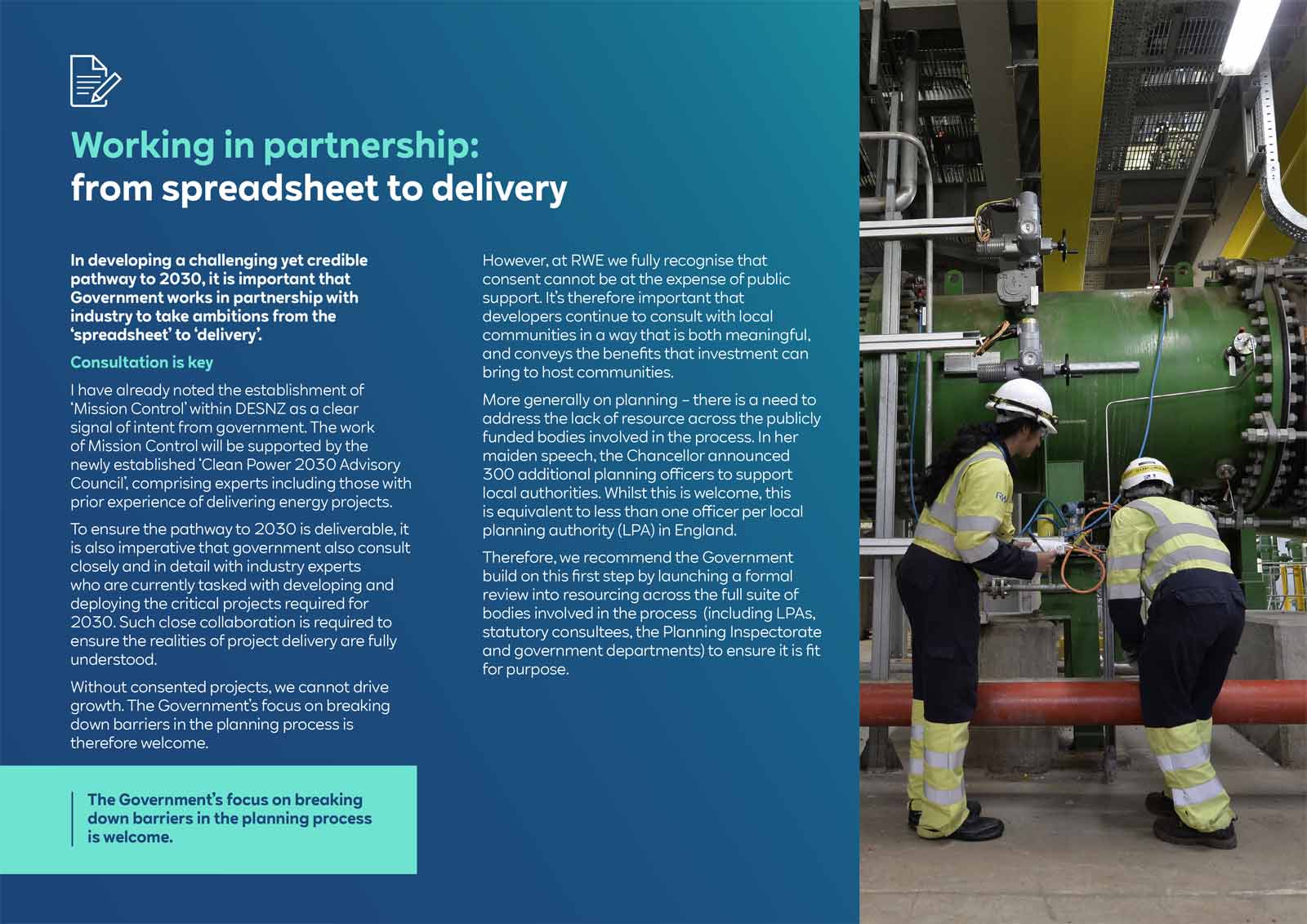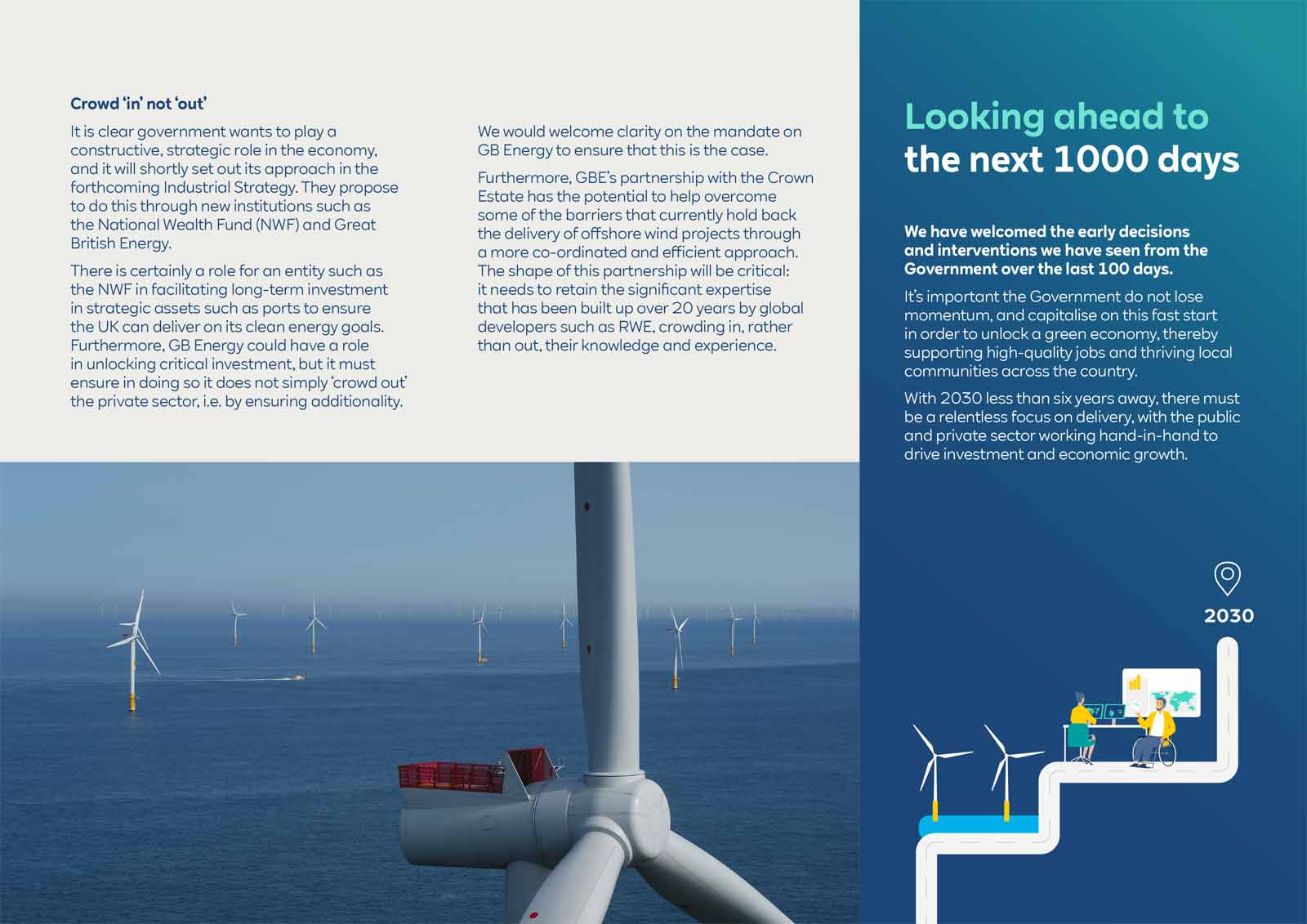
Achieving clean power by 2030 is one of the Government’s five ‘missions’. To this end, and within the first 100 days of taking power, we have seen them take decisive action - including reversing the de-facto ban on new onshore wind in England, and confirmation of financial support for the first phase of carbon capture projects.
However, with 2030 in sight, the Government cannot afford to lose momentum. In the latest ‘RWE Reflections piece, Tom Glover, RWE UK Country Chair sets out the next critical actions required to deliver the 2030 target.


In summary:
1. Accelerated renewables deployment: Time is critical – it is imperative the next renewables auction (AR7) opens as planned in Spring 2025. A clear schedule of capacity targets per auction, aligned with the 2030 target, would provide much needed certainty to investors and the supply chain as well as ensure deployment remains on track,. Revising the load factor and reference prices assumptions used in setting the auction budget would also allow the budget to stretch much further. Finally, increasing the length of the CfD contract to at least 25 years would reflect longer asset lives and enable lower strike prices.
2. Balancing renewable ambition with security of supply: RWE already plays a crucial role in providing firm, flexible capacity to ensure security of supply. Such capacity will still be required in 2030, and RWE is exploring using technologies such as carbon capture and hydrogen combustion to ensure we can continue to provide flexibility at the same time as reducing emissions. To ensure carbon capture can be deployed at scale, in the forthcoming Spending Review it is imperative the Government commits to funding the second phase of carbon capture projects and stores. In addition, it is important the Government facilitate carbon shipping - the UK’s geography and experience in oil & gas means it is uniquely well-placed to capitalise on this activity, which presents a significant international trade and export opportunity for the country.
3. Working in partnership – from spreadsheet to delivery: In developing a challenging yet credible pathway to 2030, it’s important that the Government consults closely with industry to ensure the realities of project delivery are fully understood. Furthermore, the Government’s early steps to reform and streamline the planning system is welcome – but to fully deliver on this, they need to address the fundamental lack of resource we see in the bodies involved in the planning process. Finally, whilst it is clear the Government wants to play a constructive role in the economy through new institutions such GB Energy, it must ensure that in doing so it does not ‘crowd out’ the private sector. We therefore welcome clarity on GB Energy’s mandate to ensure this.
